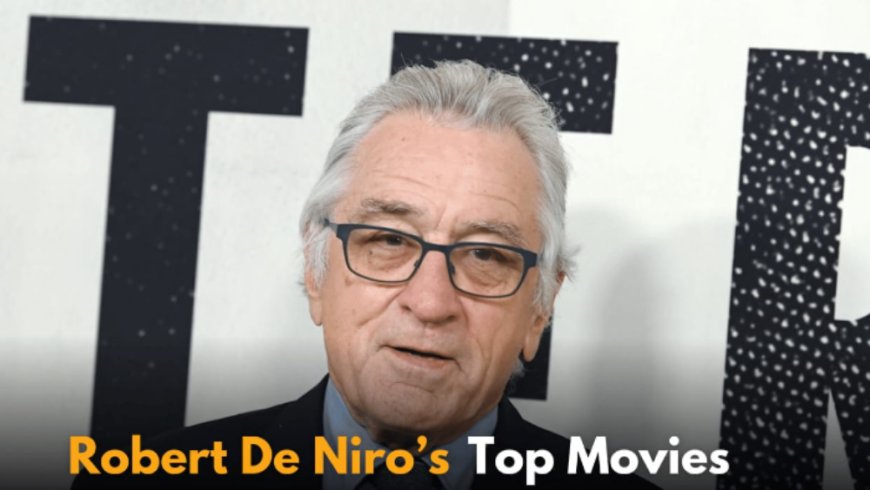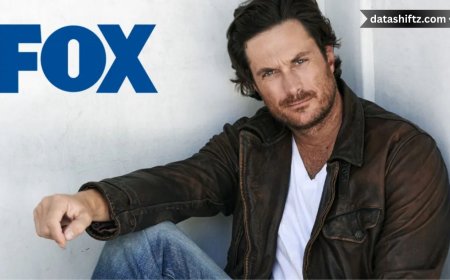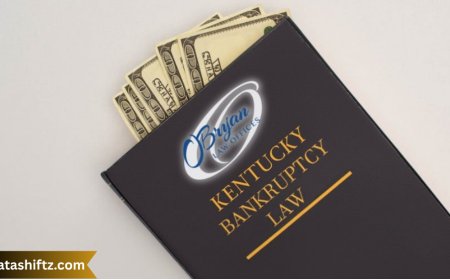Robert De Niro: Hollywood’s Legendary Actor and Cultural Icon

Introduction
Robert De Niro is widely regarded as one of the greatest actors in cinematic history. With a career spanning over five decades, De Niro has become synonymous with intense, transformative performances that leave lasting impressions on audiences worldwide. From his collaborations with Martin Scorsese in classics like Taxi Driver and Raging Bull to his comedic roles in Meet the Parents, De Niro’s versatility and dedication to his craft have earned him critical acclaim, multiple Academy Awards, and an indelible place in Hollywood history.
This article explores Robert De Niro’s life, career milestones, acting style, philanthropy, and enduring influence on the film industry.
Early Life and Acting Beginnings
Childhood and Family Background
Robert Anthony De Niro Jr. was born on August 17, 1943, in New York City. Raised by artist parents, De Niro was exposed to creativity and the arts from an early age. His mother, Virginia Admiral, was a painter and poet, while his father, Robert De Niro Sr., was an abstract expressionist painter. This artistic environment influenced his passion for performance and storytelling.
Education and Early Acting
De Niro studied acting at the High School of Music & Art in Manhattan before enrolling in the Neighborhood Playhouse School of the Theatre in New York City. There, he trained under Stella Adler, a legendary acting teacher who emphasized realism and emotional depth. Early in his career, De Niro appeared in off-Broadway plays, gradually building his reputation as a dedicated and skilled actor.
Career Breakthrough and Iconic Roles
Collaboration with Martin Scorsese
De Niro’s breakthrough came with Mean Streets (1973), directed by Martin Scorsese. Their partnership became legendary, resulting in classics like:
-
Taxi Driver (1976): De Niro’s portrayal of Travis Bickle, a mentally unstable Vietnam War veteran, remains iconic, especially his famous line, “You talkin’ to me?”
-
Raging Bull (1980): He transformed physically and emotionally into boxer Jake LaMotta, winning the Academy Award for Best Actor.
-
Goodfellas (1990): As Jimmy Conway, De Niro captured the ruthless charm of a mobster with unforgettable intensity.
Other Notable Films
Beyond Scorsese collaborations, De Niro has starred in numerous acclaimed films across genres:
-
The Godfather Part II (1974): Academy Award for Best Supporting Actor as young Vito Corleone.
-
Heat (1995): Played a masterful thief opposite Al Pacino.
-
Casino (1995): Another Scorsese classic highlighting his ability to portray complex, morally ambiguous characters.
-
Meet the Parents (2000) & Meet the Fockers (2004): Showcased his comedic talent, demonstrating his versatility.
Acting Style and Influence
Method Acting
De Niro is a committed method actor, immersing himself fully in his roles. For Raging Bull, he gained approximately 60 pounds to portray LaMotta later in life. His dedication to authenticity extends beyond physical transformation, encompassing extensive research, character study, and psychological immersion.
Cultural Impact
De Niro’s performances have shaped the way audiences perceive crime dramas, biographical films, and character-driven narratives. His portrayals of complex antiheroes and morally conflicted individuals set a new standard for acting in Hollywood, influencing generations of actors, including Leonardo DiCaprio and Christian Bale.
Philanthropy and Business Ventures
Tribeca Film Festival
In 2002, De Niro co-founded the Tribeca Film Festival in response to the 9/11 attacks, aiming to revitalize Lower Manhattan and celebrate independent filmmaking. The festival has become one of the most prestigious in the world, supporting emerging filmmakers and promoting diversity in cinema.
Charitable Work
De Niro supports various causes, including veterans’ organizations, arts education, and health initiatives. He has been actively involved in raising funds for the Muhammad Ali Center and participating in humanitarian events globally.
Business Ventures
De Niro co-owns Nobu, a global chain of luxury restaurants, and The Greenwich Hotel in New York City. His ventures reflect his interest in hospitality and cultural experiences, extending his influence beyond film.
Robert De Niro’s Career Highlights
| Year | Film/Project | Role/Contribution | Awards/Nominations |
|---|---|---|---|
| 1974 | The Godfather Part II | Young Vito Corleone | Academy Award (Best Supporting) |
| 1976 | Taxi Driver | Travis Bickle | Nominated – Best Actor |
| 1980 | Raging Bull | Jake LaMotta | Academy Award (Best Actor) |
| 1990 | Goodfellas | Jimmy Conway | Nominated – Best Supporting |
| 2000 | Meet the Parents | Jack Byrnes | Golden Globe Nomination |
| 2002 | Tribeca Film Festival | Co-Founder | Cultural Impact Recognition |
| 2019 | The Irishman | Frank Sheeran | Nominated – Best Supporting |
Key Achievements
-
Two-Time Academy Award Winner – Best Actor (Raging Bull) and Best Supporting Actor (The Godfather Part II).
-
Legendary Collaborations – Frequent work with Martin Scorsese on critically acclaimed films.
-
Versatility – Seamlessly transitions between drama, crime, and comedy.
-
Method Acting Dedication – Known for intense preparation and character immersion.
-
Philanthropy – Co-founder of Tribeca Film Festival, supporter of arts and humanitarian causes.
-
Cultural Influence – Redefined Hollywood portrayals of antiheroes and complex characters.
-
Global Business Ventures – Co-owns Nobu restaurants and luxury hotels.
-
Award Nominations – Multiple Golden Globes, BAFTAs, and SAG Awards.
-
Longevity – Over 50 years in the entertainment industry.
-
Mentorship – Inspired new generations of actors and filmmakers.
Legacy and Continuing Influence
Robert De Niro’s legacy is multifaceted: he is not only a transformative actor but also a cultural figure who has impacted film, philanthropy, and society. His dedication to craft, willingness to take risks, and commitment to authentic storytelling make him a model for aspiring actors. Films like The Irishman and Raging Bull continue to be studied in film schools worldwide, ensuring that his influence endures.
Conclusion
Robert De Niro stands as a towering figure in Hollywood, representing dedication, versatility, and artistic integrity. His career serves as a testament to the power of immersive acting, thoughtful storytelling, and cultural engagement. Whether portraying a mobster, a troubled boxer, or a comedic father-in-law, De Niro’s performances resonate deeply, earning him a lasting place in cinematic history.
As he continues to act, mentor, and advocate for the arts, Robert De Niro remains a symbol of excellence, creativity, and the transformative power of cinema.






























